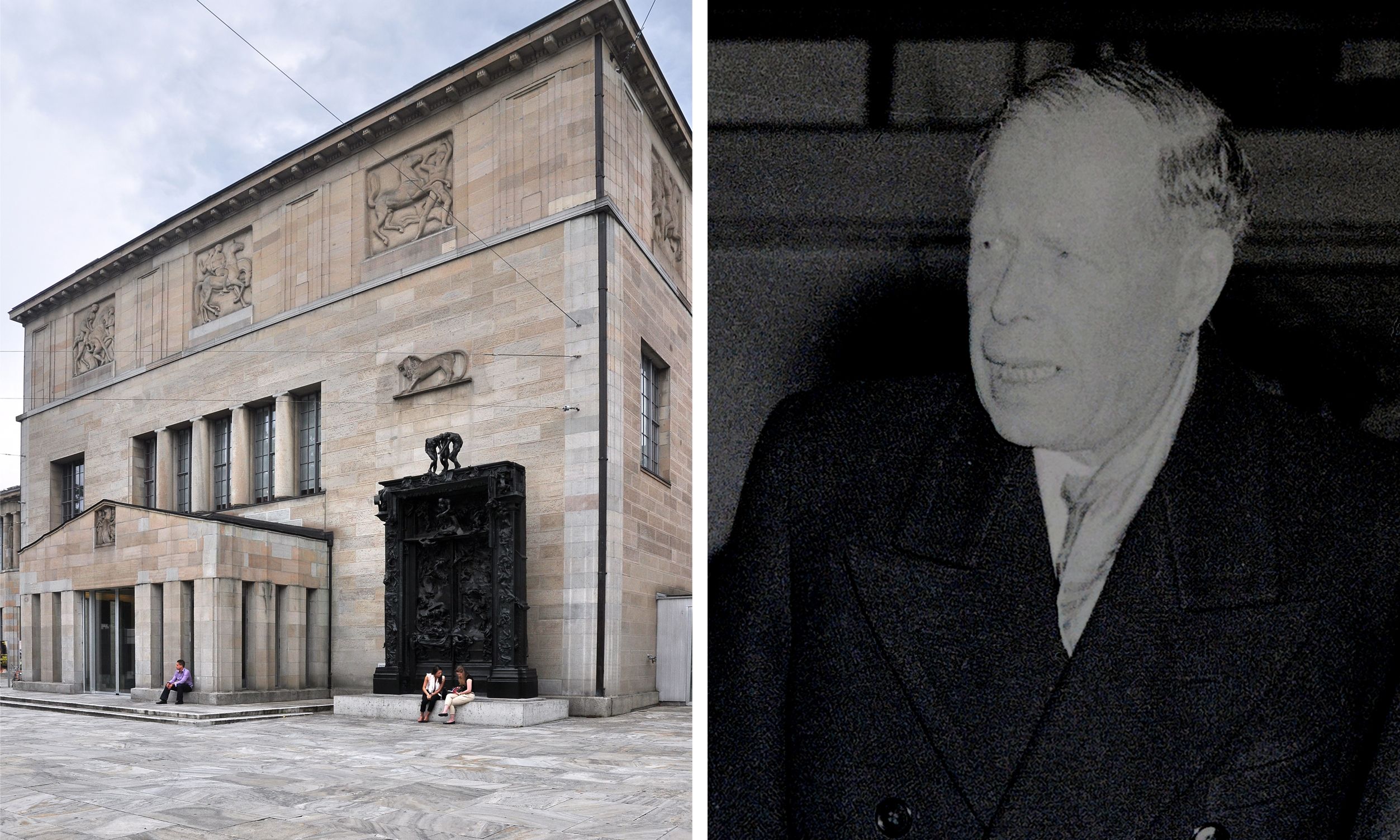The art collective's hack described the collector Emil Georg Bührle as a "Nazi sympathiser".
Credits: Kunsthaus Zurich, Photo: Roland zh; Emil Georg Bührle, Photo: ETH Library
An art collective hacked into QR codes at a controversial exhibition at Zurich’s Kunsthaus, giving visitors its own unvarnished interpretation of the biography of the collector Emil Georg Bührle, whom the collective describes as “a Nazi sympathiser, authoritarian militarist, at the very least a war profiteer and probably a war criminal.”
An uproar over the Bührle collection overshadowed the opening of the Kunsthaus’s imposing new extension in 2021. The building, designed by the British architect David Chipperfield, displays 170 Impressionist works on loan from the Bührle Foundation. Bührle, a Swiss industrialist who died in 1956, made his fortune by selling arms to Nazi Germany and bought art looted by the Nazi regime.
On its website, the art collective KKKK describes the Bührle collection as “Switzerland’s version of a Holocaust memorial” and says it is the product of “persecution, expropriation and murder". The collective demanded the immediate restitution of any works in the collection that were directly or indirectly stolen from Jews, and the sale of all the remaining works to benefit Holocaust survivors, their descendants and the descendants of labourers enslaved by the Nazis.
The connections between Bührle and the Kunsthaus date back to 1940, when Bührle became a member of its board; he also funded an earlier extension, completed in 1958. It is uncontested that Bührle’s company sold anti-aircraft cannons to Nazi Germany during World War II and profited from slave labour.
Some critics argued that the Kunsthaus should never have accepted the loan of his collection given the origins of his wealth. They also criticised the Bührle Foundation’s provenance research, saying it white-washed the circumstances under which the art was acquired.
The foundation says none of the works in the collection on display were lost due to Nazi persecution and therefore eligible for restitution to the rightful heirs. But at least one work in the collection is contested: the foundation rejected a claim for Claude Monet’s Poppy Field Near Vétheuil (1879).
A new director, Ann Demeester, took office in January pledging to confront the troubled Bührle legacy. The city and canton of Zurich have also set up an independent commission to investigate and evaluate the Bührle Foundation’s provenance research. The current, much-criticised Bührle exhibition will be replaced by a new show in November.
The hackers’ action “shows us that the themes that will be addressed in the new exhibition continue to be topical,” Demeester said in response to an emailed enquiry. “We look forward to engaging in discussion when it opens. We are working with a multi-voiced team and a council of external experts on this exhibition. We have reached out to the KKKK to start a conversation beforehand.”

